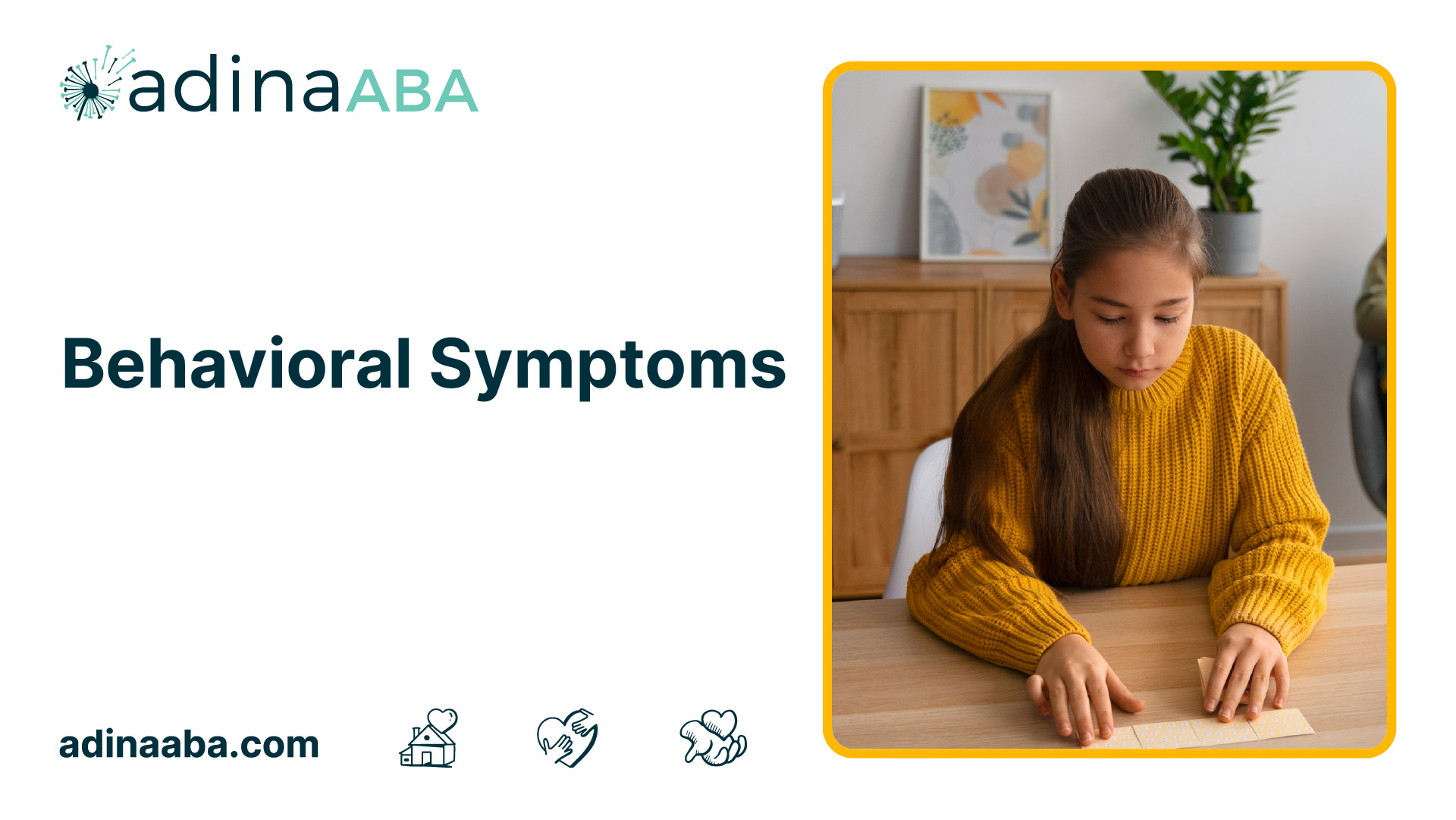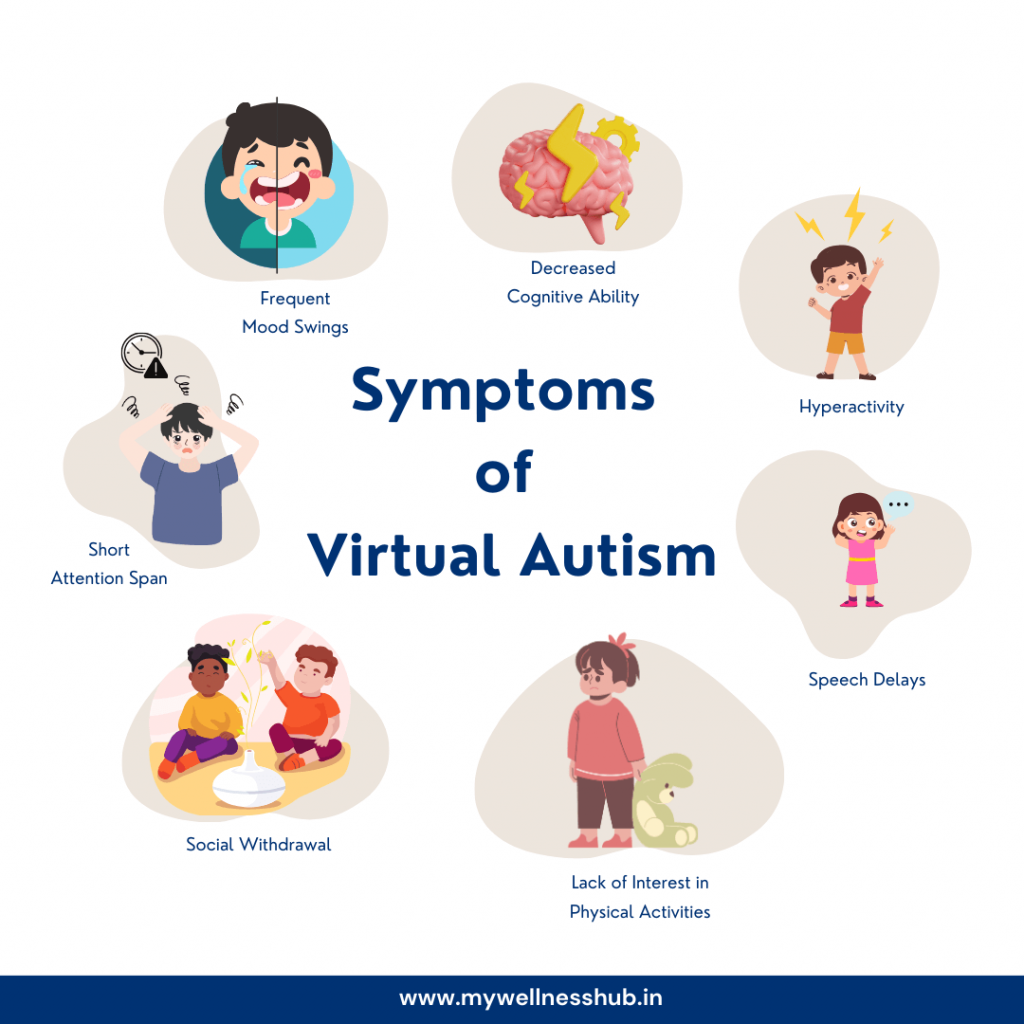How experts in Autism Spectrum Therapies approach challenges in expression
How experts in Autism Spectrum Therapies approach challenges in expression
Blog Article
Comprehending the Influence of Behavioral Autism on Daily Life and Social Interactions
You may not understand how deeply behavior autism impacts everyday life and social communications. People on the spectrum frequently browse a world loaded with interaction difficulties and sensory overload. These difficulties can lead to stress and isolation, influencing their relationships and general health.
Defining Behavior Autism and Its Characteristics
Behavior autism, typically referred to as autism range disorder (ASD), includes a range of problems defined by difficulties in social communication, communication, and repeated behaviors. You might see that people with ASD usually have a hard time to analyze social hints, which can lead to misconceptions in conversations. They might locate it difficult to develop eye call or engage in small talk, making social situations really feel frustrating.
Interaction problems can manifest in different means, from postponed speech development to a choice for using fewer words. Recurring habits, such as hand-flapping or shaking, can work as coping mechanisms to handle stress or sensory overload. These features can greatly impact day-to-day live, making it vital for you to recognize and support those with ASD. By identifying these traits, you can promote an atmosphere that promotes approval and motivates reliable communication, helping people with autism prosper in their everyday communications.
The Range of Autism: Understanding Variability in Behavior
Autism spectrum problem (ASD) isn't a one-size-fits-all medical diagnosis; it varies extensively amongst individuals. You might encounter individuals that are extremely spoken and engage easily in conversations, while others may favor solitary activities or communicate non-verbally.
In addition, the means individuals with ASD reply to sensory input can differ substantially; some could be bewildered by loud sounds or brilliant lights, whereas others prosper in promoting settings. The range also includes differences in social interactions; some people may struggle to interpret social signs, while others browse social setups with relative simplicity. Comprehending this variability is necessary, as it helps you value each individual's special experience and tailor support to their particular needs, fostering a more inclusive environment for everyone.
Communication Difficulties Dealt With by Individuals With Autism
When you communicate with people on the autism range, you may observe their unique interaction obstacles. They often face troubles with both spoken and nonverbal hints, which can impact their social communications. Understanding these barriers is important for promoting better connections and support.

Verbal Communication Difficulties
Numerous people on the autism spectrum experience verbal interaction troubles that can considerably influence their everyday communications. Your tone, volume, or pace might not align with social assumptions, triggering others to misunderstand your objectives. Identifying these obstacles can assist you and your assistance network create strategies to improve communication and foster much better links with others in your day-to-day life.
Nonverbal Communication Barriers
Verbal communication isn't the only obstacle people on the autism range face; nonverbal communication obstacles can be just as substantial. These challenges can lead to misunderstandings or misconceptions of social hints, making communications really feel overwhelming or complicated. By resolving nonverbal communication, you can discover methods to boost your social experiences and enhance your overall quality of life.
Social Interaction Impacts
Social communications can commonly feel overwhelming due to the special communication obstacles encountered by individuals with autism. Recognizing these difficulties can assist you locate methods to enhance communication, such as exercising social skills in secure setups or making use of aesthetic help. Understanding your demands enables you to navigate social communications with greater self-confidence and ease.
Social Communication and Relationship Building in Autism
While building relationships can be testing for individuals with autism, understanding their special viewpoints and communication styles can cultivate significant links. You might discover that many people on the spectrum favor straight communication and might battle with social signs or small talk. By being simple in your communications, you can help produce a setting where they feel comfy.
Make the effort to observe and listen exactly how they share themselves. This understanding can lead you in steering discussions more successfully. Taking part in shared rate of interests can additionally function as a bridge to deeper connections. Whether it's a leisure activity, a preferred show, or a common interest, these usual threads can open doors to relationship.
Daily Life Routine: Navigating Obstacles and Approaches
Navigating every day life routines can be especially challenging for individuals with autism, particularly when unforeseen modifications take place. You could find comfort in having an organized timetable, as it aids you anticipate what's following. When disturbances occur, it's typical to feel anxious or overloaded. To navigate these difficulties, think about applying aesthetic schedules or checklists. These devices can offer quality and peace of mind.
Developing a routine that consists of sensory breaks can likewise be useful. You can intend time-outs throughout your day to recharge. It's vital to communicate with those around you, letting them know your preferences and demands. This helps produce an understanding environment.
Lastly, method mindfulness strategies to manage stress and anxiety. Basic breathing exercises or basing techniques can make a considerable difference. By including these techniques, helpful resources you can boost find your daily regimen and reduce disturbances, making life feel a lot more manageable.
Strengths and Abilities of Individuals on the Autism Range
Comprehending day-to-day live regimens is simply one facet of the autism experience. Many individuals on the autism spectrum possess exceptional toughness and capacities that establish them apart. You could locate that your interest to information is phenomenal, allowing you to stand out in jobs that call for precision and focus. Your ability to assume outside the box can bring about cutting-edge remedies in different situations.
Moreover, your memory abilities often radiate, especially in areas of passion. Autism Spectrum Therapies. This knack for preserving info can make you a valuable source in areas like scientific research, art, or innovation. You might likewise show solid aesthetic thinking, enabling you to imagine intricate concepts and address troubles creatively
Furthermore, your distinct perspective on the globe can foster compassion and understanding in others, improving social interactions. Embracing these toughness not only boosts your self-confidence however also aids others value the diverse abilities you bring to the table.
Developing Inclusive Atmospheres for People With Autism
Developing inclusive environments for people with autism starts with designing sensory-friendly areas that deal with their one-of-a-kind demands. You can likewise foster chances for social interaction, assisting to build connections and relationships. By making these adjustments, you'll add to a more inviting atmosphere for every person.
Designing Sensory-Friendly Spaces
While making sensory-friendly spaces, it's crucial to assess the one-of-a-kind needs of people with autism. Start by selecting soothing shades and soft illumination to create a relaxing environment. When bewildered, include silent areas where individuals can pull away and reenergize. You'll want to decrease loud sounds and diversions, making use of soundproof products or white sound machines to help preserve harmony. Take into consideration tactile aspects like soft fabrics or fidget-friendly items that can give convenience. Establish that rooms are flexible, enabling simple reformation to suit different activities. Consist of aesthetic schedules or clear signs to help individuals navigate the area with confidence. By attentively incorporating these aspects, you can produce an inviting environment that supports sensory requirements and advertises total health.
Promoting Social Communication Opportunities
Creating sensory-friendly areas not just addresses private comfort yet additionally sets the stage for meaningful social interactions amongst people with autism. To promote these communications, create inclusive environments that invite engagement. Organize structured activities, like art courses or group games, that urge partnership without overwhelming sensory input. Usage aesthetic aids and clear interaction to assist everyone involve pleasantly. Motivate peer mentoring, matching individuals with autism with helpful peers who can lead them with social circumstances. In addition, take into consideration organizing regular area occasions that commemorate neurodiversity, fostering approval and understanding among all individuals. By carrying out these approaches, you can boost social chances, helping individuals with autism develop relationships and enhance their social abilities in a safe, welcoming setting.

Regularly Asked Inquiries
Just How Can Friends Support Somebody With Behavioral Autism?
You can sustain a friend with behavioral autism by being person, paying attention proactively, and valuing their borders. Involve in tasks they appreciate, communicate honestly, and develop a comfy atmosphere where they feel valued and comprehended.
What Resources Are Offered for Parents of Kid With Autism?
You can discover numerous sources for parents of youngsters with autism, including support system, instructional web sites, and regional social work. look at here now Connecting with various other parents can also give important understandings and shared experiences to assist browse challenges.
Can Behavioral Autism Change Gradually?

Yes, behavior autism can change gradually. You could see shifts in interaction, social abilities, and actions as your youngster grows. Early treatment and support frequently play essential functions in these developing modifications.
Just How Do Sensory Sensitivities Impact Day-to-day Live?
Sensory sensitivities can make day-to-day experiences frustrating. You might deal with loud sounds or intense lights, bring about tension or avoidance. Finding settings that suit your requirements can substantially improve your convenience and overall daily life.
What Prevail Misconceptions Concerning Behavioral Autism?
You might believe behavior autism just impacts interaction skills, but it's more complex. Numerous presume individuals lack empathy or intelligence, which isn't real. Recognizing these misunderstandings assists foster approval and support for those on the spectrum.
Behavioral autism, usually referred to as autism spectrum problem (ASD), encompasses a variety of conditions characterized by difficulties in social interaction, interaction, and repeated habits.Social communications can often really feel frustrating due to the one-of-a-kind interaction obstacles encountered by people with autism.Designing sensory-friendly areas not just addresses private comfort however likewise sets the stage for meaningful social communications among people with autism. Motivate peer mentoring, combining individuals with autism with supportive peers who can direct them through social circumstances. By carrying out these methods, you can improve social opportunities, assisting people with autism construct friendships and strengthen their social abilities in a risk-free, welcoming environment.
Report this page